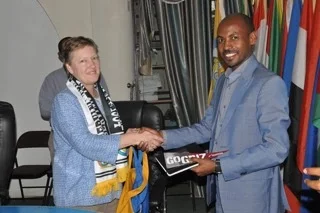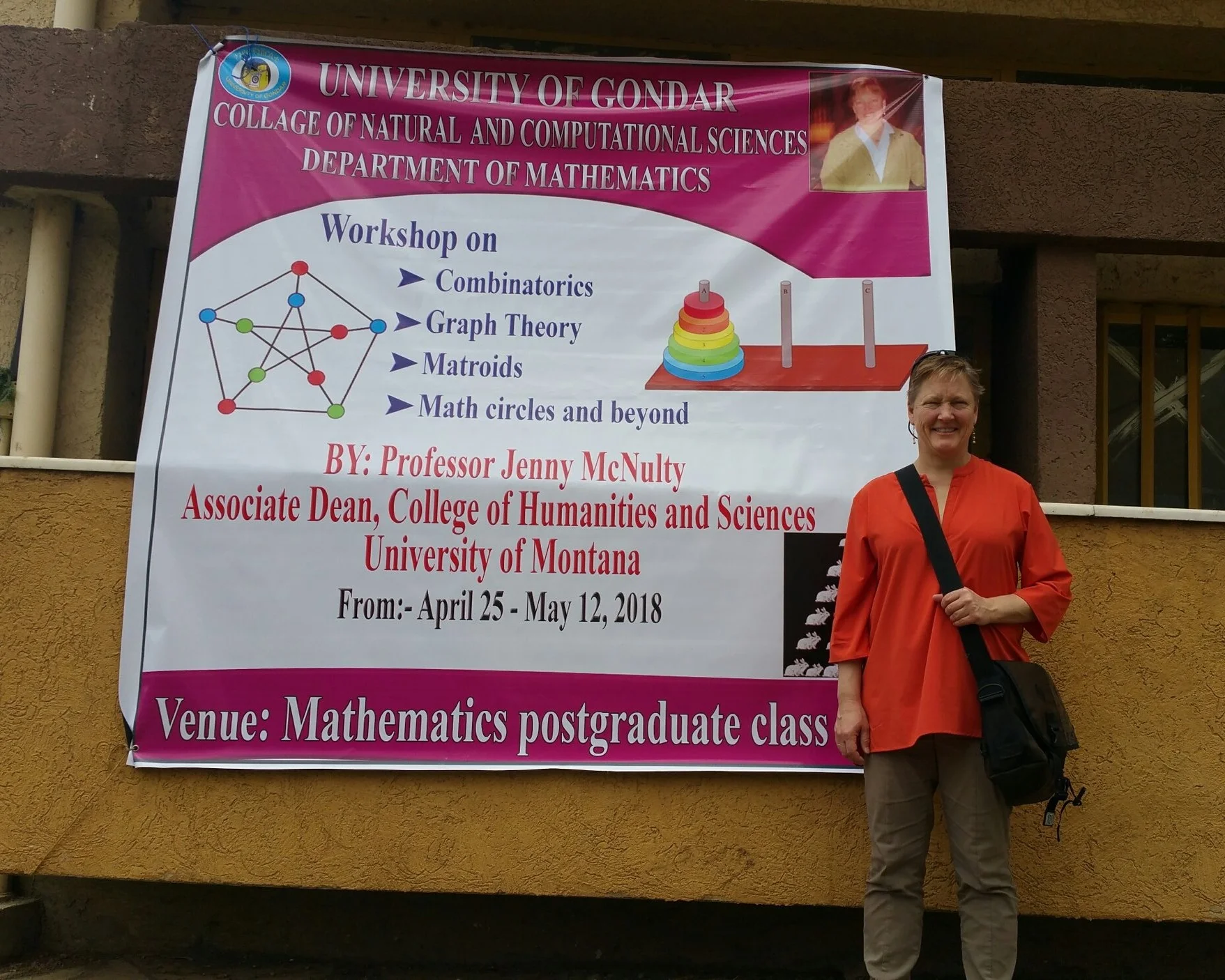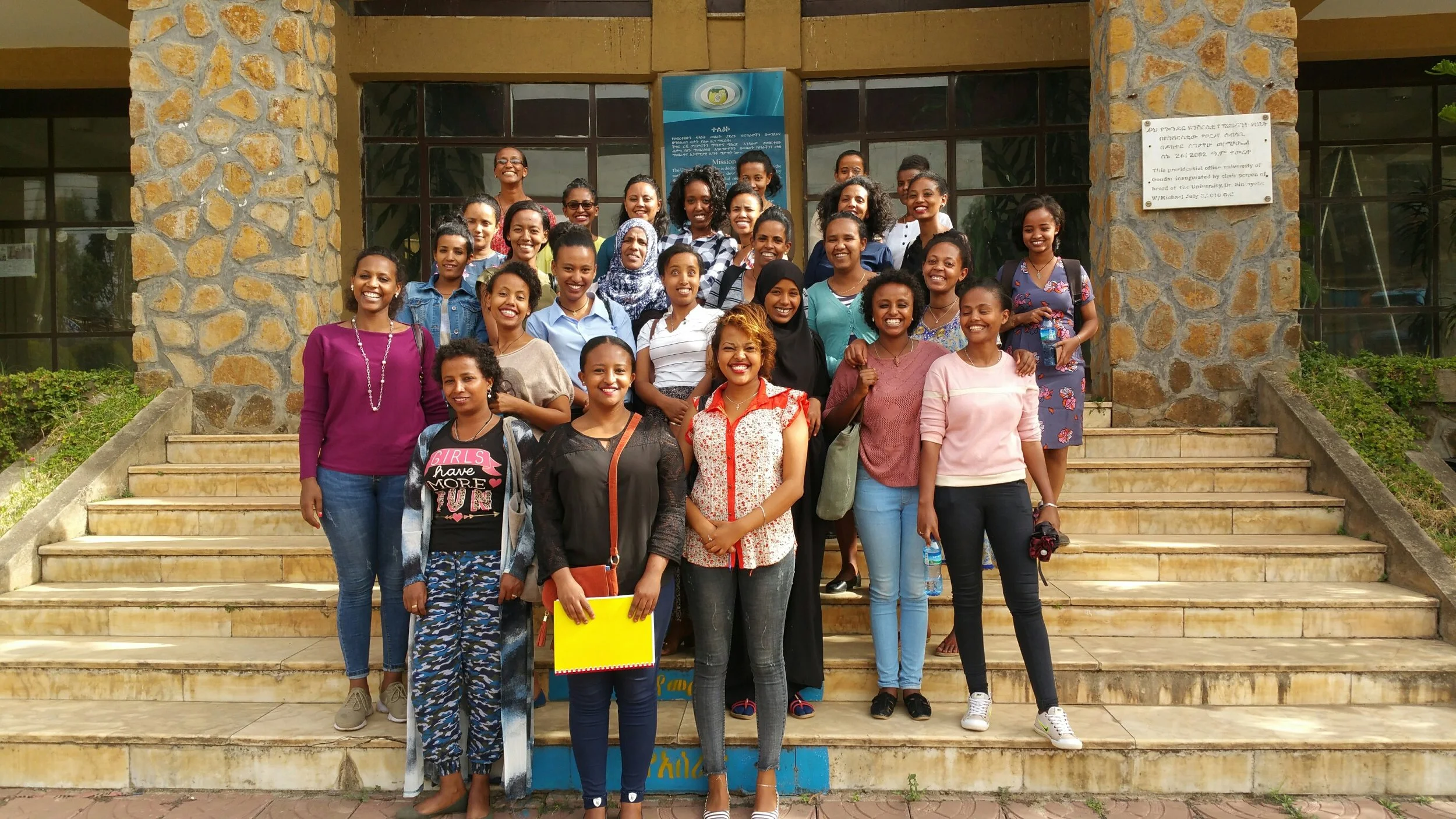“This is not meant to be a one-way street.”
When Fulbright Specialist Jenny McNulty went to Ethiopia in 2018 at the request of the University of Gondar, she was committed to fulfilling the host institution’s goal of introducing more active teaching and learning methods to math educators.
McNulty also knew that she wanted to work to strengthen the University of Gondar’s relationship with the University of Montana, where she is a math professor and dean of the College of Humanities and Science. While in Ethiopia, McNulty helped renew a memorandum of understanding in the hopes that it would open the door to more exchange between the two universities.
As a Fulbright Specialist in Gondar – a historical city in Northern Ethiopia that was once the seat of 12th century emperors – McNulty’s day-to-day work included observing a variety of math classes, conducting workshops with university faculty, and consulting with them on curriculum design.
In Ethiopia, teachers at the K-12 and university levels typically rely heavily on lecturing, and they expect students to memorize lessons. Visiting an undergraduate class, she recalls, “You could hear a pin drop. It’s a very serious and formal setting.”
Through a series of workshops, McNulty modeled active learning techniques to faculty members. She taught math faculty new ways to engage students and help them remember concepts – such as writing a one-minute paper, creating a graphic illustration, or even making up a song. During class, she sang an impromptu song to highlight a key point.
“By the end we were all laughing and joking,” she said. “The faculty enjoyed my teaching style and learned quite a bit in a short amount of time.”
She also taught combinatorics, a branch of math that is important to computer science. Combinatorial algorithms and techniques are used in internet searches, route planning, and scheduling.
“Only a couple of faculty members have master’s degrees in this area… and they don't have colleagues with direct experience in the field to ask opinions about the subject,” she adds.
About a year before McNulty traveled to Ethiopia as a Fulbright Specialist, the University of Gondar hired a large number of new female faculty in an effort to improve gender balance – doubling the number of women teaching at the university across many disciplines. McNulty observed that many of them had only bachelor’s degrees and not much prior teaching experience.
As a result, McNulty met with female faculty, leading a three-day faculty development workshop for recent hires.
“When I gave my presentation, I thought maybe 20 people would come,” McNulty recalls. “Two hundred women attended! There was an auditorium full of people. I was very surprised.”
Encouraged by the turnout, she and her counterpart at the University of Gondar, Tsega Hagos, began working together to launch the Gondar Montana Mentorship (GMM) Program, matching both new and more experienced female faculty at the University of Gondar with mid- and senior-level female faculty at the University of Montana.
The concept of mentorship was unfamiliar to many of the faculty in Gondar and generated much excitement among hopeful participants. Out of 70 applicants, McNulty and a small committee selected 30 women to take part in the first cohort of mentees.
Nearly a year later, the mentorship program has taken off. Mentees and mentors alternate writing emails around topics such as creating a professional bio and C.V., preparing for the TOEFL exam and studying for the GRE before applying to graduate school.
“There is quite a need for faculty development,” McNulty adds.
She eventually wants to work with her colleagues in Gondar to create a homegrown mentorship program for students. In the meantime, McNulty and her Ethiopian counterparts hope the faculty program they have established continues for years to come. They will be evaluating its first year in the spring of 2019, to better understand how the mentor program benefits not just the University of Gondar, but faculty at the University of Montana as well.
"This is not meant to be a one-way street," says McNulty. "Mentors have much to learn from their mentees."
McNulty says the Fulbright Specialist Program was an incredible opportunity to learn more about Ethiopia and share her expertise in mathematics and mentoring
She adds: "I look forward to continuing this collaboration with my colleagues in Gondar."




